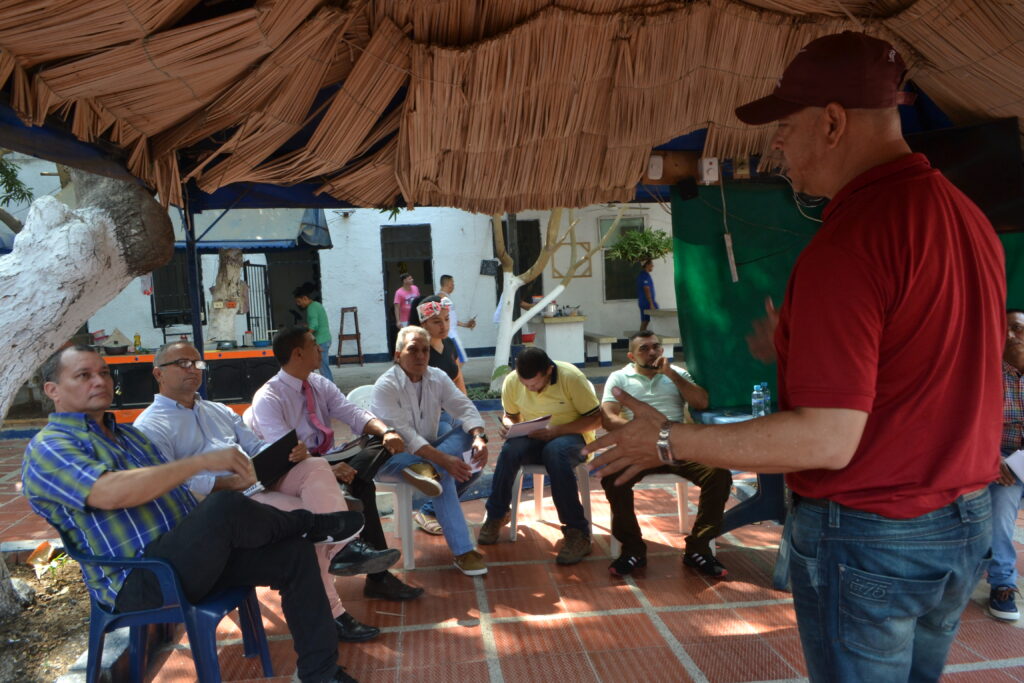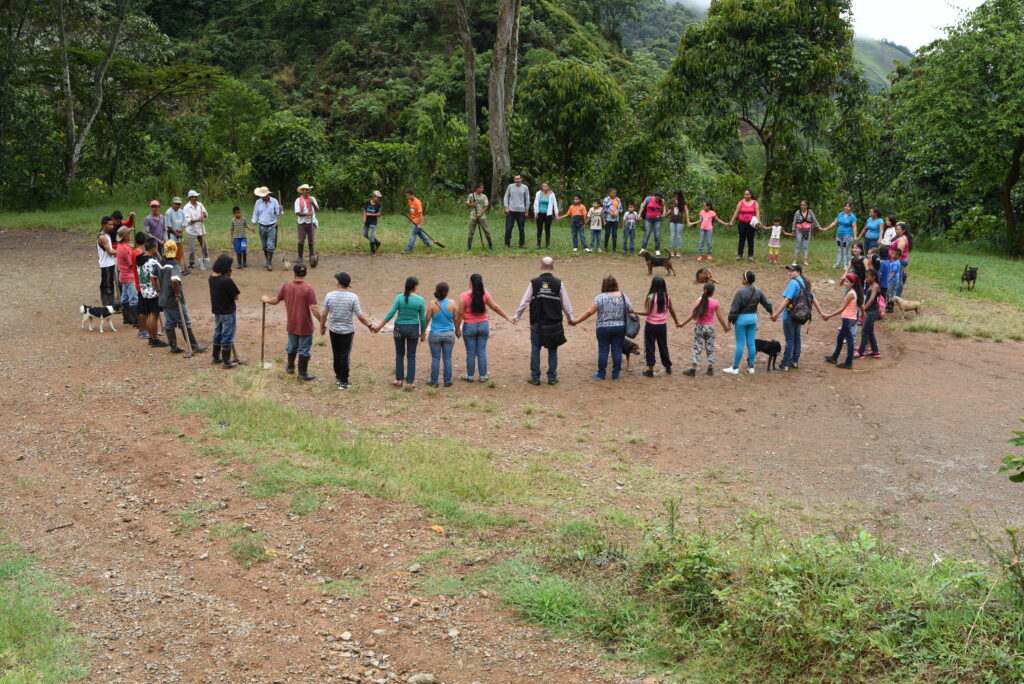
Colombia’s tumultuous peace process has shown just how divisive the topic of justice can be in the country where FARC soldiers were able to avoid prison sentences through the 2016 peace accord.
Instead of advocating for harsher punishments, one Colombian group is working towards a more progressive approach to justice. The Medellín-based nonprofit Confraternidad Carcelaria has set out to bring what’s called restorative justice in response to Colombia’s decades-long internal conflict. This approach allows for entire communities to have a say in the process by having perpetrators and victims sit down together and talk, offering up an opportunity for reconciliation.
The Bogotá Post spoke with Gershom Donner, the director of operations at the Confraternidad Carcelaria, to get insight into the impact the nonprofit is having. Currently, the pandemic has made it so the organization is focusing more on supplying food to those in need around the country. Still, through programs like the Sycamore Tree, the Confraternidad Carcelaria remains largely devoted to holding workshops within prisons and also in rural communities impacted by violence, where those who have committed crimes can better understand the effect those actions have on the country.
Below is our in-depth conversation with Donner. Excerpts follow:
The Bogotá Post: Can you explain what the Sycamore Tree program entails exactly?
Gershom Donner: The method is a series of workshops and one-to-one interviews and events that have a purpose of trying to make the perpetrator aware of the harm that they’ve done and the damage they’ve done and the way in which they’ve affected other people. And try to understand for themselves that being a victim is what led them to become a perpetrator.
There’s workshops where you work with both sides. In a rural community, very often you’ll have members of an armed group that affected that community, maybe they committed massacres or extortions, or whatever other crimes. Then you’ll have victims of those massacres and victims of those extortions and the crimes they’ve committed in that area. And they’ll be in the workshops and they’ll be able to express how their life was affected by it.
There’s a process of asking for forgiveness and then there’s a process where the victims explain what the perpetrators could do to try and restore some of the damage they’ve done to the community.

TBP: What can that include?
GD: They might be involved in improving a public area, like a park. There’s also, in some of the more affected areas, rooms they call salones de nunca más which are memorials for all the people who passed away or disappeared. And it will be the perpetrators that build these places. Some of them build schools.
You’re trying to get the victims very much involved in the decision making as to what they want and what they think will be helpful in their community.
TBP: I imagine this process is very emotional. What makes you guys know that these exercises are having an impact?
GD: Having restorative justice actually makes the whole process very real for people. It makes the perpetrators actually have to confront what they did. And it gives them an opportunity, which is what most of them really want. Most of them want an opportunity to give back or to make up for the harm they did.
It also allows the victims to, in some way, get peace and to be able to move on and to forgive. They get some closure, I think that would be the best word to use. Obviously they get a lot of satisfaction from seeing the people that did a lot of damage who are then committed to restoring something and providing a service to the community that they harmed.
TBP: Colombia is a country where people tend to think crime should be dealt with via harsh punishments. It’s a country where if someone gets caught picking pockets, a large group of people will then retaliate and record themselves beating up the would-be thief. How can your organization help change the perceptions of crime and justice in Colombia?
GD: With crime here there’s a real sense that there’s a very unfair system and that the system should be a lot harsher, and if the system was harsher then it would teach people. But actually if you look at the history of crime and punishment around the world, it’s never been the case that harsh prison sentences actually reduce reoffending or that they change peoples’ attitudes.
The idea of doing restorative justice gives them a chance to genuinely do something within themselves and change. It shows that it’s working. But for that to be recognized, it will take a long time.
TBP: What else should we know about this line of work?
GD: Trying to bring these people together who were sworn enemies for so long, it’s not easy work. If you can find a chance in preventing this, there’s actually a lot of good work that is going on in Colombia that often doesn’t get the recognition that it should get. It doesn’t get the support that we would need to have.
And yet, the work carries on. You can see the results.





